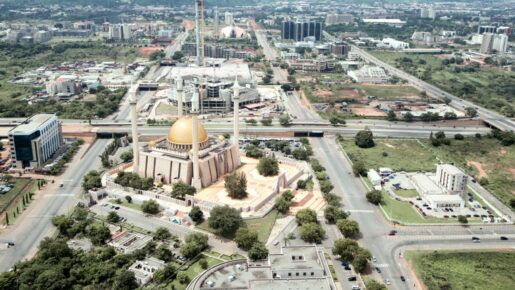Abuja, in today’s tumultuous times, uncertainties abound, leaving the governance of Nigeria adrift without a stable anchor. Beyond merely questioning each other’s credibility, Nigerians find themselves pondering the very rationale of their existence. Amidst this constant flux, the essence of stability should persist, with Nigeria’s foundational principles—federalism, multiethnic and multireligious diversity, and unity in diversity—forming its core, as captioned by entrepreneurng.com

The status of Abuja as the Federal Capital Territory, established to serve as a unifying center, should be beyond debate. Recent attempts to politicize its status amidst broader national challenges detract from addressing urgent issues demanding attention. Instead, we should focus on establishing a functional government capable of effectively governing Nigeria and upholding its authority.
The inception of Abuja and the relocation of the Federal Capital Territory from Lagos were championed by Chief Obafemi Awolowo and his Action Group, who advocated for a centrally located capital. Despite opposition, including from the Northern Peoples Congress and the NCNC, the idea persisted, reflecting a long-standing aspiration for equitable national representation.
It’s establishment was not a northern agenda, but rather a strategic decision supported by historical precedent and global examples of capital relocations. It symbolizes Nigeria’s commitment to progress and unity, transcending regional interests or affiliations.

Maintaining Abuja as the Federal Capital Territory is not only constitutional but also pragmatic, considering the substantial investments made in its infrastructure and institutional framework. While the president retains discretion to decentralize executive agencies for operational purposes, any attempt to reverse it’s status would be regressive and impractical.
Beyond it’s significance, it is imperative for state governments to focus on governance and development within their jurisdictions, ensuring equitable distribution of resources and opportunities across the nation. Additionally, addressing historical injustices related to land ownership in it is essential for fostering long-term peace and social cohesion.
Conclusion

Abuja
Abuja stands as a testament to Nigeria’s commitment to unity and progress. Its significance transcends political rhetoric, representing a symbol of national identity and aspiration. As we navigate the complexities of governance and nation-building, preserving it’s status as the Federal Capital Territory remains paramount for the cohesion and prosperity of our nation.


